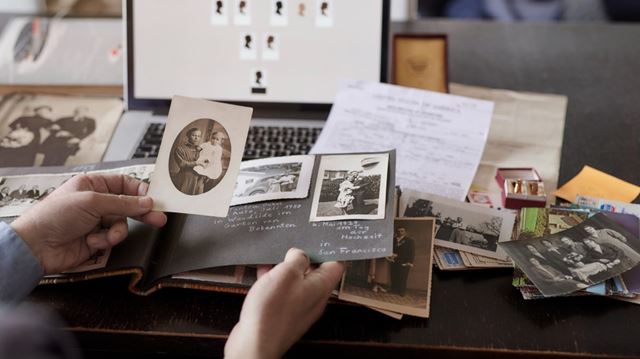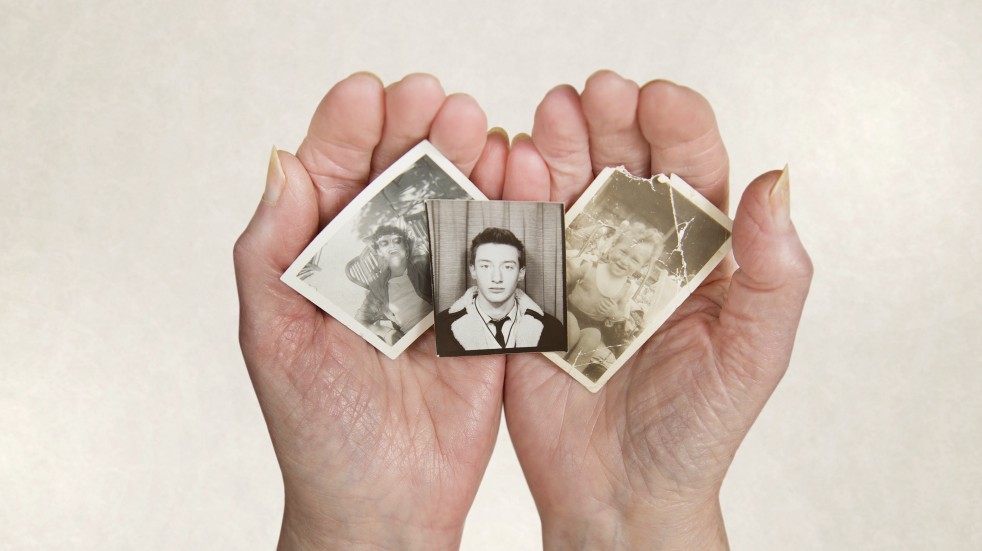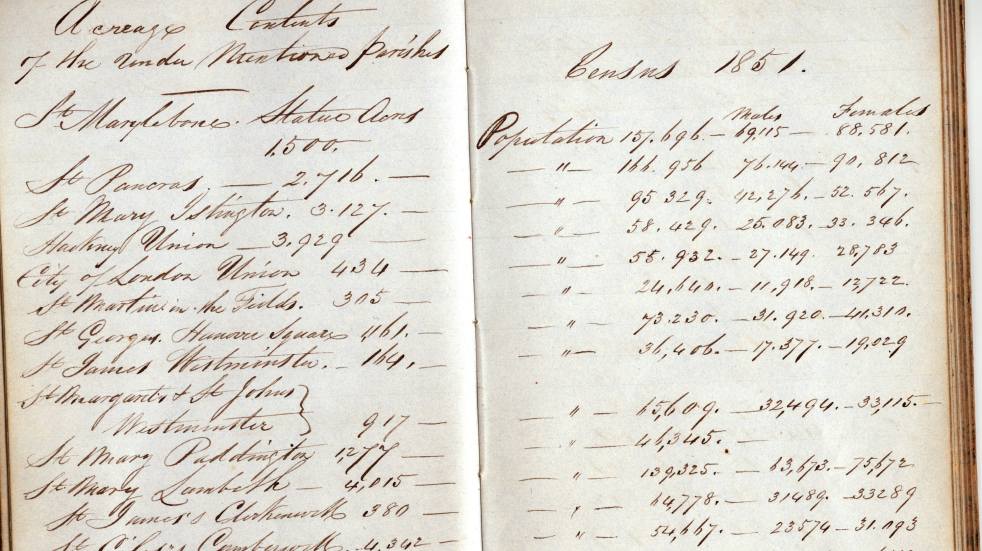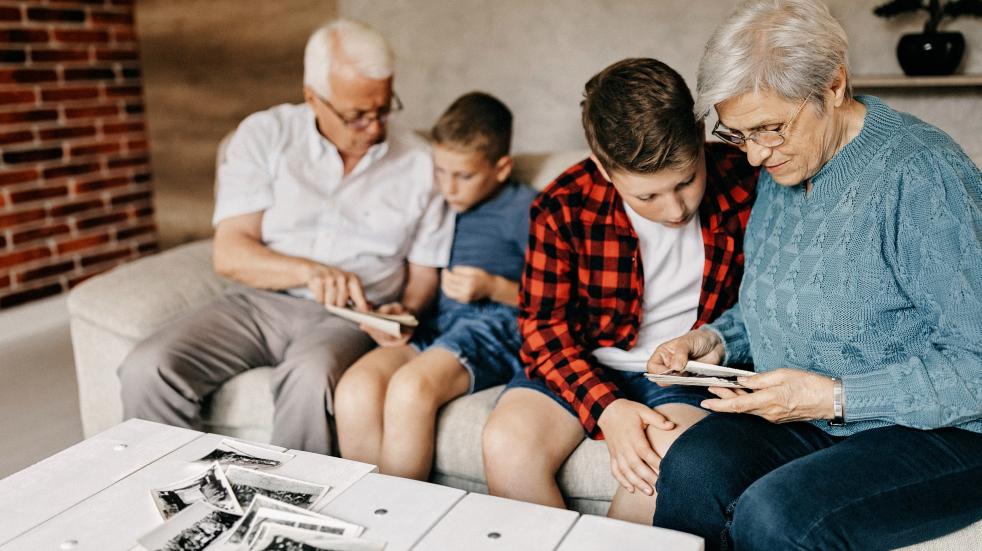
Genealogy enthusiasts will already be digesting the 1921 census data released in January. So, what’s the attraction and how do you get started?
The release of the 1921 census in January was exciting news for me. It enabled me to find relatives at home, with their families, after all the trauma and upheaval of the Great War. Seeing their handwriting as they shared details of their family and their work brought me closer to them. It also reminded me of how I first got into family history 20 years ago, when the 1901 census came online.
Back then I was working on a computing magazine and researching a story that was all about how the website couldn’t cope with the demand. For me, though, it was this window into the past that fascinated me. I was hooked.
When I made those first tentative steps, I realised that I knew far more about my mother’s side of the family than my father’s. I’d never questioned this, or even noticed before that I could list family surnames and name my great-grandparents on one side of my family and knew almost nothing about the other. I don’t think my father was trying to hide anything, it’s just that he wasn’t particularly interested and I never asked.
As I explored the fascinating lives of his ancestors, including a surgeon during the Boer War and a pioneering female scientist, a strange thing started to happen – I gradually felt more grounded.
That was 20 years ago and for me, now, the main pleasure I get from family history is the detective hunt. Sometimes it feels like putting together a jigsaw puzzle. When a new set of parish registers is released, I scrabble around looking for the pieces to attach to my family tree. At other times it can feel more like I’m tackling The Times cryptic crossword as answers elude me.
Motives and means

So why do people get into tracing their family history? For most it’s just curiosity, but some are prompted by the death of a family member. Going through inherited boxes of photographs and documents can leave people with a whole host of questions they wish they had asked earlier – and a desire to find some answers.
For others, it may be driven by a wish to understand a family story or trauma. The TV presenter and journalist Richard Madeley’s book Fathers and Sons details how his grandfather’s childhood experience of abandonment and betrayal left an emotional legacy that was passed down to him. He’s said that researching the story of his grandfather’s experience was part of his healing journey.
Whatever your reasons for wanting to explore your roots, the mass digitisation of records means that it’s getting easier. Gone are the days when you had to travel up and down the country to visit local archives (although there is plenty still waiting to be discovered in these great institutions). In this digital age, all you need is access to the internet.
In fact, a digital family tree is a good way to keep your discoveries in order. You can buy family tree software, try simpler free downloads such as RootsMagic Essentials (rootsmagic.com) or use a free online family tree builder like the ones offered on sites such as ancestry.co.uk.
Start by filling in what you know and ask family members for their input. They might have carried out research themselves or remember stories they can share. They may also have photographs and documents that have been passed down to them.
Digital aids

Online, a key place to start is the census. At the time of writing, the 1921 census was only available via pay-as-you-go on findmypast.co.uk. However, other census collections from 1911 back to 1841 are available on all four main subscription websites (see the How to Dig For Free panel below) as well as the free website FamilySearch.org.
Census records will give you family relationships, occupations, age and place of birth enabling you to start looking for official birth, marriage and death (BMD) records. English and Welsh records can be ordered from gro.gov.uk; for Scotland, it’s scotlandspeople.gov.uk. Most civil birth and death records can be ordered as PDFs for £7. Marriage certificates, and other paper copies, will set you back £11. Scottish records can be downloaded from the ScotlandsPeople website for £1.50 each.
It’s possible to start your tree without ordering BMD records, as you can get some details for free from the GRO indexes and other sources. However, these records are a bedrock of family history and worth ordering for the main ancestors you are researching.

Another cornerstone of family history is parish registers, especially when you get back to before civil registration started in 1837 (or 1855 in Scotland). Churches have recorded baptisms, marriages and burials for hundreds of years and many of these records are starting to go online.
Family history is about much more than just birth, marriage and death records, though. The digitisation of millions of pages of historic newspapers, for instance, has made it much easier to uncover fascinating stories about our ancestors. Many military, criminal, occupational and workhouse records are also now online and can add colour to your family tree. Digitisation has also opened up records overseas. To take just one example, many Jamaican records are freely available on FamilySearch.org.
The old view that family history is a hobby only for those with time on their hands and a desire to spend their weekends in archives is very much out of date. You can dip in and out of it as you wish, adding details to your family tree when you have a spare moment. Most people find they can get at least one of their family lines back to the mid 19th century without too much trouble. And if you’re struggling, there’s a friendly community willing to help. Who knows what you might discover?
360 Degrees of genealogy

There’s a wonderful, supportive family history community, and it is worth tapping into if you get stuck (or even just want to share your successes). The biggest forum for UK family historians is Rootschat.com, but smaller ones such as whowhenwheregenealogy.org.uk are also very welcoming. There are also specialist forums if you’re interested in a particular period or area of interest, such as the Great War Forum (greatwarforum.org) . If you prefer using Facebook to forums, the Who Do You Think You Are? magazine group is a friendly space for newbies. Family history societies can be a great way to tap into years of experience. The Family History Federation (familyhistoryfederation.com) and the Scottish Association of
Family History Societies (safhs.org.uk) will help you find one that suits you. If you’d like to go on a family history course, there are plenty of options that can be completed remotely as well as in person. Pharostutors.com offers a range of courses costing between £30–£92, as does the Society of Genealogists, with short tutorials starting at £15 (sog.org.uk/learn).
Last but not least, Who Do You Think You Are? magazine helps you to build up a library of tutorials and guides and offers monthly inspiration and details of the latest records to go online. The magazine also has a useful website (whodoyouthinkyouaremagazine.com), and a weekly free email newsletter.
Do more with Boundless
Have a go at Genealogy - member online talk
Exploring your family history can reveal some amazing stories and open up a fascinating window on your past. Taking those first steps, though, can seem a bit daunting. So, in this talk, Sarah Williams – editor of Who Do You Think You Are? magazine – will show you how it’s done.
To benefit from amazing offers, along with dozens of other deals on holidays, motoring services, experiences, shopping and more, join Boundless today. To find out how, visit our dedicated membership page.




